The changes in horse’s living conditions can sometimes make a sensitive horse upset. The things that are constant will comfort him, but the change in surroundings – sights, smells, sounds, can all make a difference to his well being. Until he gets used to it, it can be a time when new behavior emerges.
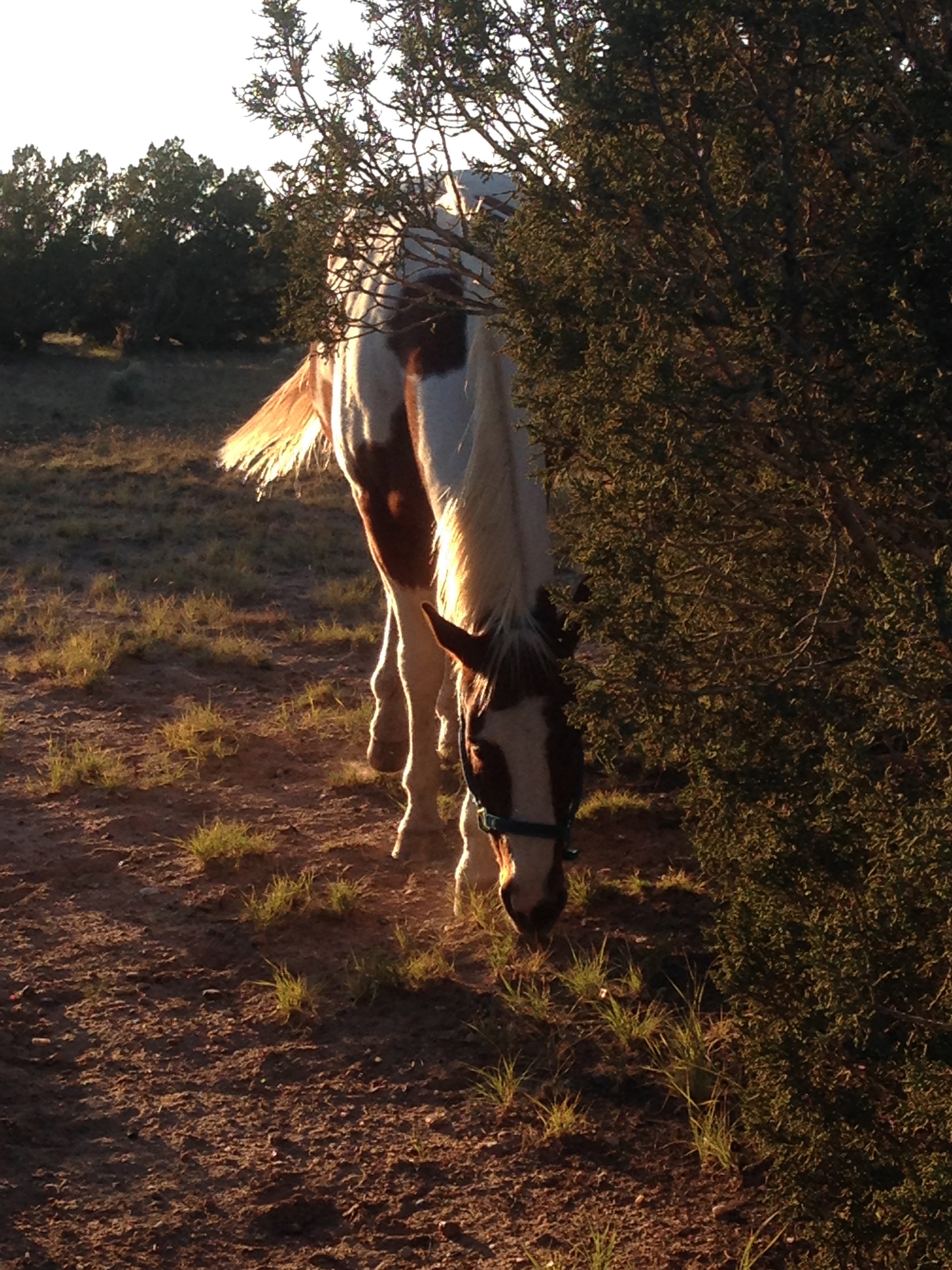 Some horses deal with change better than others. My Paint horse doesn’t deal with change well. Sometimes older horses don’t deal with change as well as the younger ones, who are more eager to see new things. It so depends on the nature of the horse and the relationship he has established with his humans.
Some horses deal with change better than others. My Paint horse doesn’t deal with change well. Sometimes older horses don’t deal with change as well as the younger ones, who are more eager to see new things. It so depends on the nature of the horse and the relationship he has established with his humans.
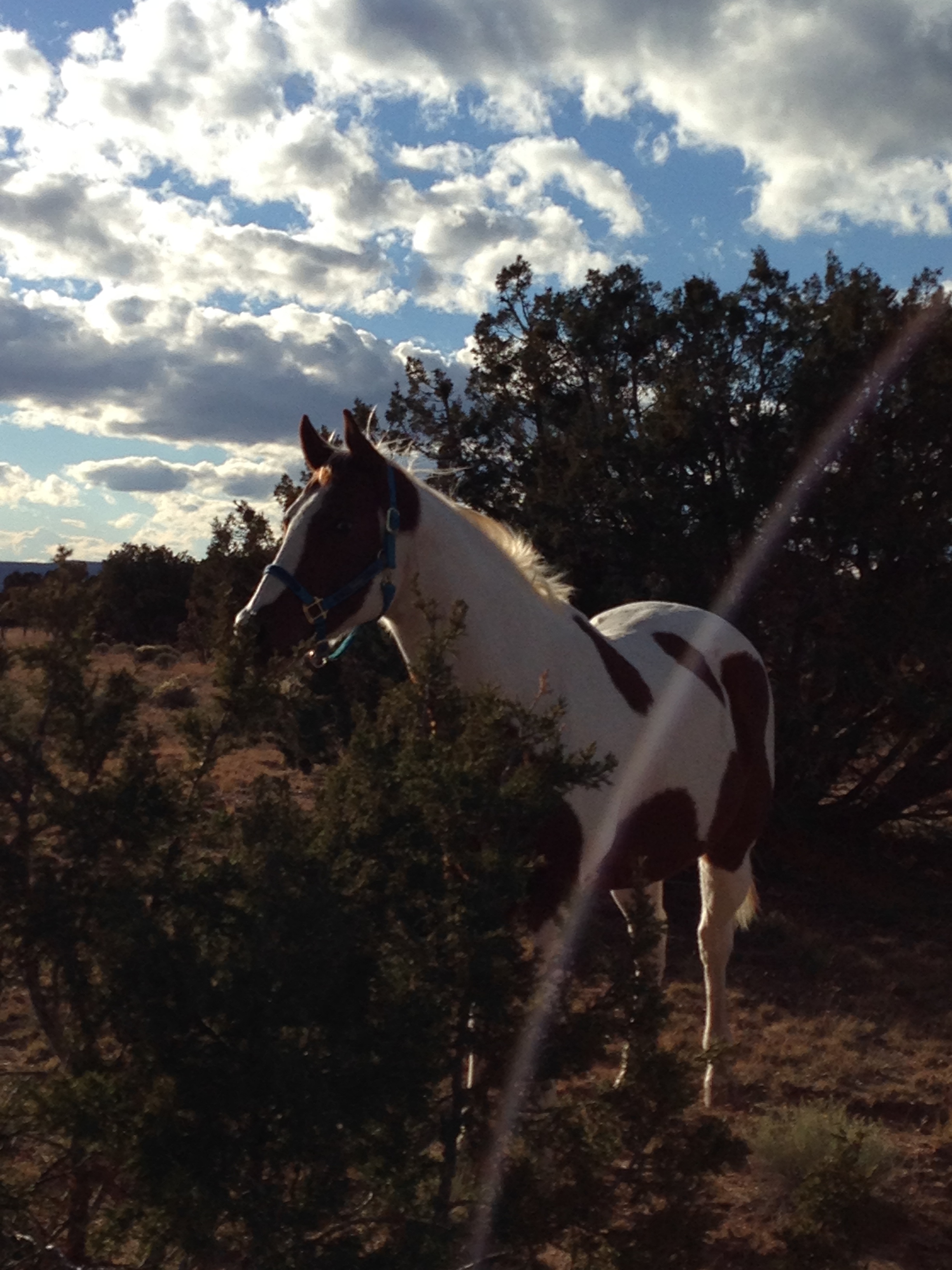 When I begin to see that change is not welcome, I try to shape things a little differently for that horse. I meet him where he is, in the “no change zone.” From there I can begin to introduce changes gently, if possible.
When I begin to see that change is not welcome, I try to shape things a little differently for that horse. I meet him where he is, in the “no change zone.” From there I can begin to introduce changes gently, if possible.
Two horses I know recently had big changes occur in their living situations. Last week I wrote about Patches losing his friend Bo and what that meant to his life in The Healing Herd
Sometimes horses experience setbacks in their training when a move or sudden change occurs, because they feel out of sorts and
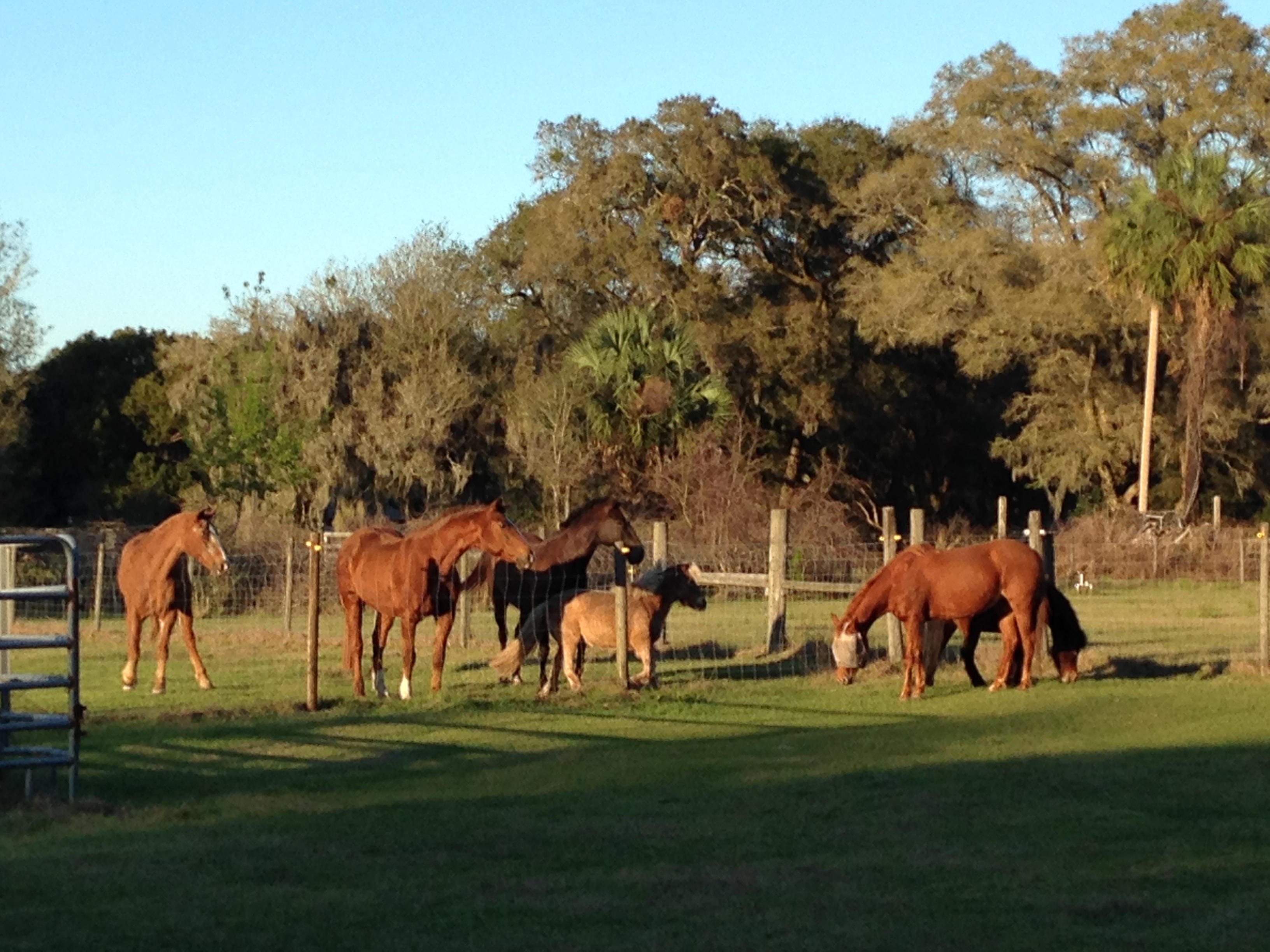
disoriented in the new home. They may form attachments quickly with other horses, or not at all. In one case, a mare formed instant bonds with the new horses at her new home, and practically ignored her owner, who felt very hurt! Time is the best medicine for this. The mare took awhile to rebound and come back to herself. Throughout this change, the horse’s people should remain the constant in their lives: someone familiar, with all the recognizable gestures, smells and sounds that they feel comfortable with.
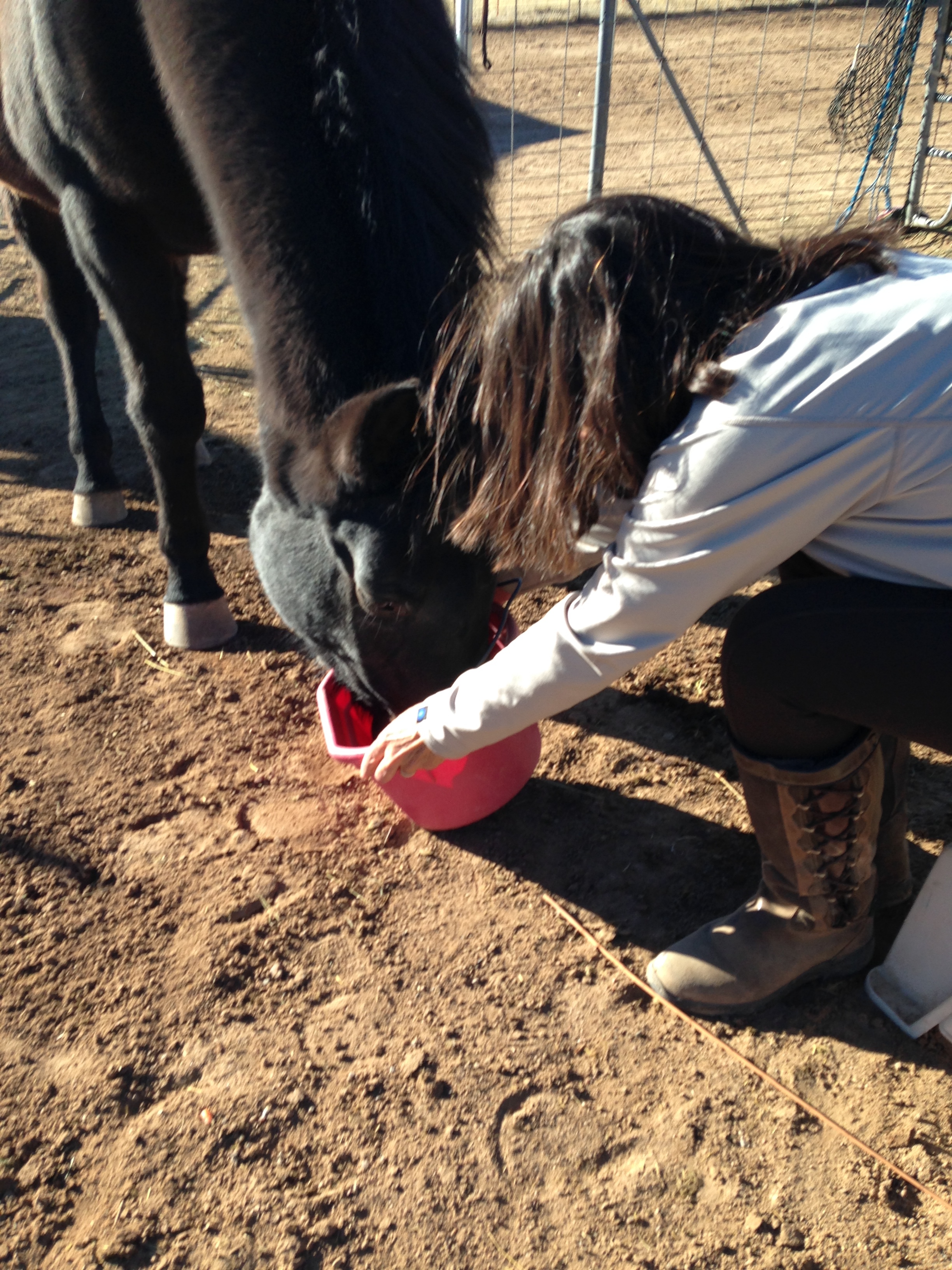
The best thing to do is to not put a lot of expectations on the horse when they have to move somewhere new, or experience a shock or trauma. Perhaps it’s an opportunity to explore the new place together, introducing yourselves to your horse’s new friends, not insisting on separation from the new herd, going for walks so the new place doesn’t feel so unfamiliar. Feel the air, the sounds, smells, sights of the new place, as your horse is experiencing them. This will go a long way to making your horse feel comfortable. Working with all six senses and horses
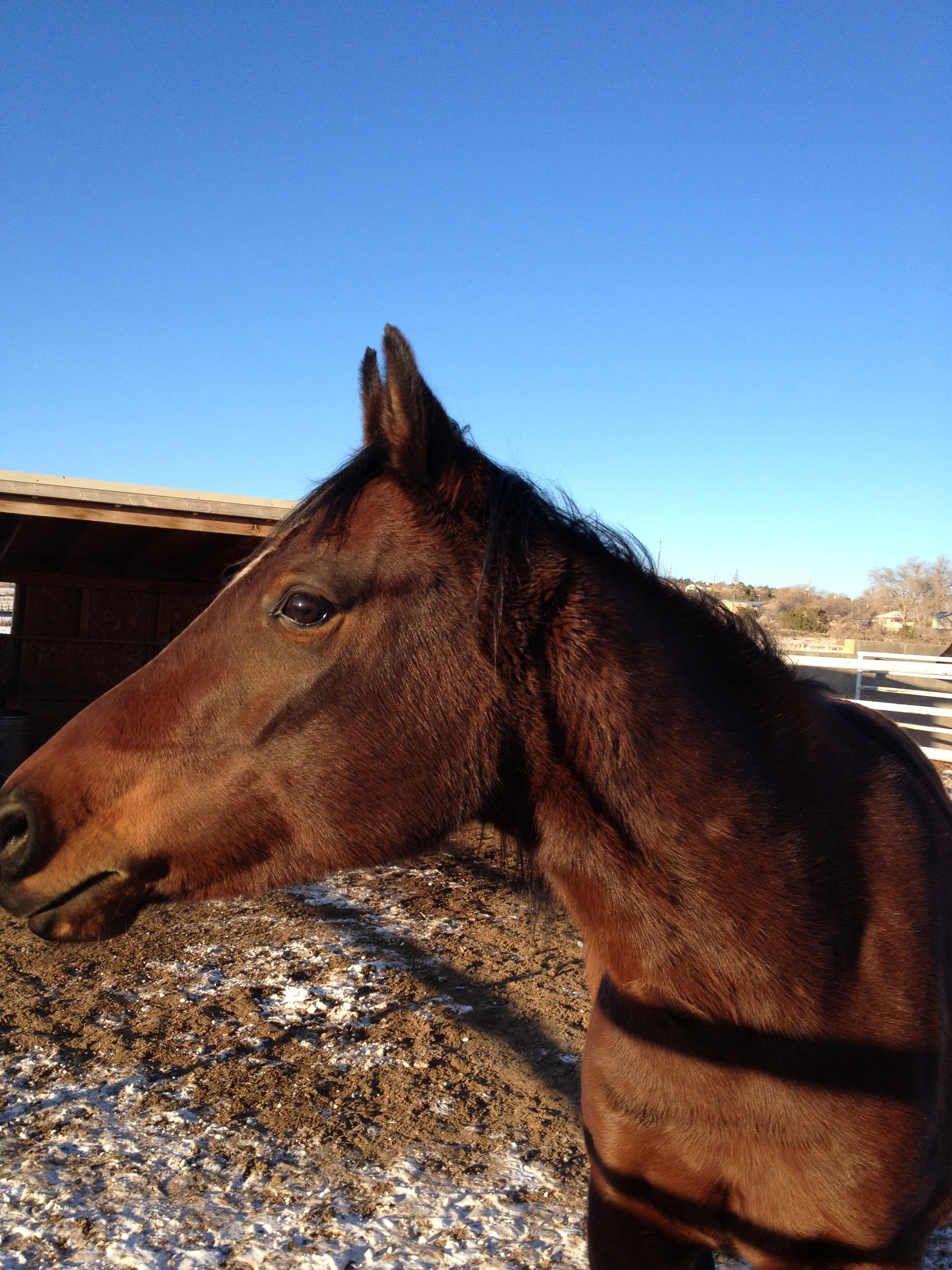
Have you ever noticed how jumpy a horse can be in an unfamiliar setting? When I first brought my young mare Jazzmine home, she would get spooked by the slightest thing for the first couple of weeks, flying around at the end of a lead rope. She had gone from living on a large acreage with many other horses, where she had lived all her life, to a much smaller space, still with a lot of horses. At first, she would not make close relationships with other horses. She stuck close to me, even though we really didn’t know one another well. I worked with the Liberty Foundations almost daily to bring her comfort, to emulate the herd she had left behind.
Of course, horses who are moved around a lot to different events may not experience this problem. They’re used to doing a lot of things away from home, and staying for several days in a new place. One recent student who is a professional trainer said that her young mare stays more attached to her when they travel to shows, clearly drawing comfort from their well-established relationship.
Horses who have had many different homes and owners in their lives may experience more anxiety about change than horses who have lived with the same people for a long time. They make take longer to adjust. Even Patches, who was trailered to shows all over the place before we got him, gets anxious about a trailer ride and going to teach a clinic somewhere else. His nervous system is interesting however, maybe because he’s a quiet breed. He settles very quickly once he knows what his job there is and begins to be a social butterfly.
In the cases of moving I mentioned above, I suggested the owner return to doing the very beginning foundations with her horses, in order to establish comfort in the new setting. Figuring out the herd dynamics were of utmost importance to her horses initially, and they didn’t have time to be with her. But after they felt the herd situation was in the bag, they wanted to spend time with her again. It was best that she not take any of this personally.
When you have to move or go somewhere exciting or different, prepare your horse by thinking and talking about it first, even visualizing the new place. Then when you get there, walk the horse around the space he’s going to occupy, introduce him to the other horses, so it’s not so strange. It still takes a few days or in some cases a month to get accustomed to a new place if it’s a permanent move. But a lot can depend on the energy of the owner too. For day trips, the transition is usually easy because you are staying with your horse the whole time and experiencing everything together.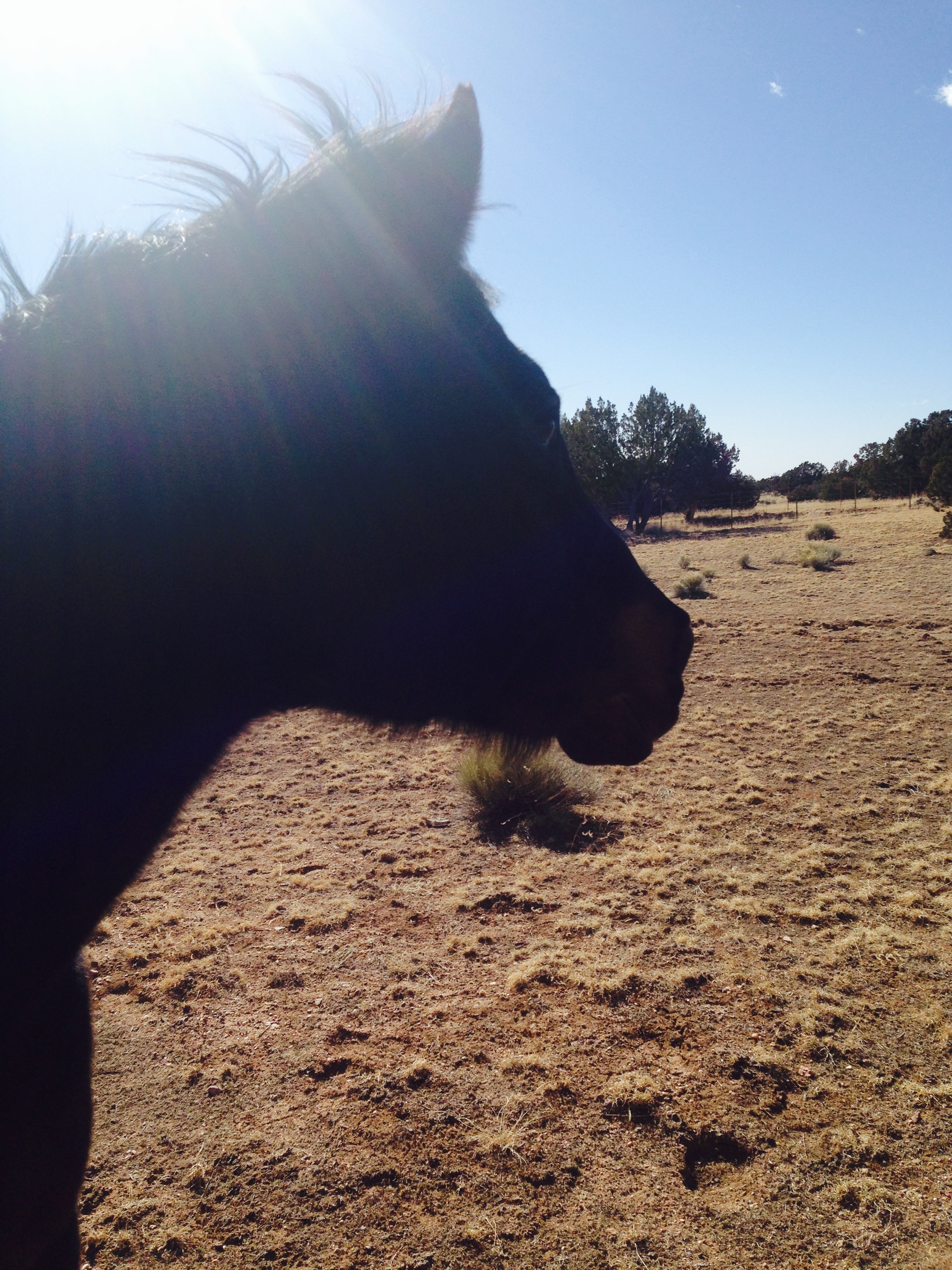
The “no change zone” is a great default that works because it does not expect anything. The horse can adapt to the change in his own time, without pressure. This is working at a cellular level, with quiet repetition of familiar rhythms that heal and settle, and open the nervous system to new experiences, without fear.
*****
(copyright: Susan Smith, OrthoHorse)
Services: Bodywork: (Ortho-Bionomy for people, Equine Ortho-Bionomy): private sessions, tutorials, phone consultations, Horse & Rider sessions, distance healing communication and gift certificates
Liberty Coaching: clinics, mini-clinics, workshops, private and semi-private sessions, tutorials, consultations: by appointment: 505.501.2478 or emailing susansmith@orthohorse.info Scheduling now. Contact me for details.
I’m now putting together the 2015 Clinic Calendar. Let me know if you want to do a clinic at your location. Prices will vary according to location.
Filling Fast!!!! By popular demand, the last Santa Fe 1-Day Liberty Workshop of 2014 will be held at Arrowhead Ranch November 15, from 9:30 a.m.-4:30 p.m. We will work with the natural tendencies of the horse, honoring her/his need for food, safety, space and community. We also work with establishing our place in “the herd.” Cost: Early Bird payment before November 1st: $150, after November 1st: $175.
Who will benefit from this work?
All horses and humans, but specifically:
- Horses who have not responded to traditional natural horsesmanship
- Horses who have been frightened, abused and in other ways traumatized
- Horses who may be aggressive or too passive in their herd situations
- Horses who have problems with humans
- All humans who may be puzzled about relationship with horses and want to deepen their connection.
December 13-14 I will be in DeLand, Florida teaching a Weekend Liberty Clinic. One spot is available, so please register asap if you want to come! An OrthoHorse Tutorial as well as private lessons and sessions will be offered on Friday, December 12th.
Book your spot today! Cost: $325
January 27-March 10, 2015 – Horses at Liberty Online Advanced will continue the instruction for those students who have taken an introductory online or in-person clinic from me.
The work builds on what has been taught in the introductory course with refining movements, body language, knowing what and when to ask for change, celebrating the horse’s gifts of engagement. Cost: $311
Payment for the Santa Fe 1-Day Liberty Workshop and Advanced Online can be made by check, PayPal or credit card. A PayPal button for each of those events is available on the home page of my website, http://www.orthohorse.info
Susan is a member of the Independent Liberty Trainers Network. libertytrainersnetwork.com/



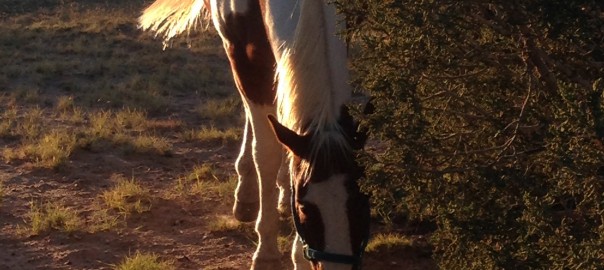
Great tips for dealing with horses during changes in their lives, Susan! I think this would apply to other animals as well. We must remain the constant in their lives, which provides safety and comfort for them!
For the Free Horse,
Ruella Yates
Liberty Foundations
Spirit Horse Ranch